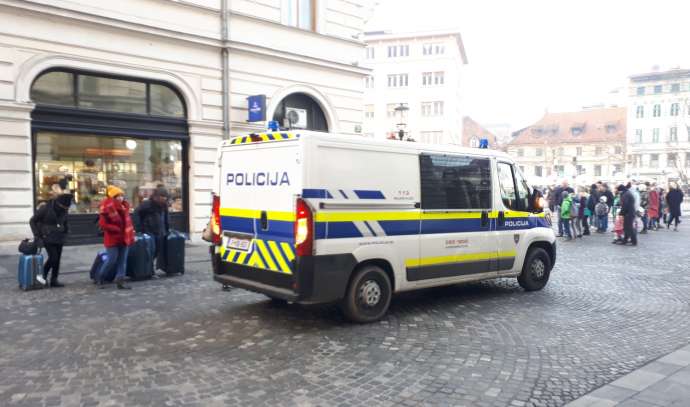STA, 5 February 2019 - Ljubljana police have arrested a senior criminal investigator with access to sensitive police information who appears to have been involved in drug dealing and was caught in wiretaps.
The arrest was announced by the Ljubljana Police Directorate on Tuesday and the case transferred to the special task force of prosecutors dealing with suspected crime in police ranks.
Slovenian media report that the suspect was on the staff of the police's intelligence department and had been busted dealing drugs.
Police caught whiff of his off-duty activity in October, when they were wiretapping suspected drug dealers, according to Večer.
Večer also reports that his clearance gave him access to information that may have been of interest to criminals.
The police did not reveal the man's identity beyond saying that he was a senior detective who was "involved with sources and informants".
But Večer says the suspect was a senior detective who had received a special commendation from the police commissioner for successfully investigating the massive robbery of an SKB bank vault that took place in 2005.
As a result of the sting, two heads of departments dealing with the acquisition and analysis of intelligence have been transferred.
Tomaž Pečjak, the police commissioner's chief of staff, told the press the department heads were not suspected of any wrongdoing, they were transferred as a matter of precaution.
Police Commissioner Tatjana Bobnar also decreed that the police intelligence and analytics department be reorganised to improve efficiency.
Deal signed on cooperation in prosecution of police officers
STA, 5 February 2019 - Representatives of the prosecution and police have signed an agreement on the prosecution of police officers, which is expected to provide them with better conditions for cooperation and exchange of information in relevant cases.
The agreement was signed on Tuesday by State Prosecutor General Drago Šketa and Police Commissioner Tatjana Bobnar, the Office of the State Prosecutor General announced in a press release.
It determines the rules for cooperation and exchange of information between the police and the department for the investigation and prosecution of officers with special authorisations of the Specialised State Prosecution.
Šketa and Tatjana Bobnar said that the agreement enabled better cooperation and exchange of information in cases when there is reasonable suspicion that an officer employed in the police has committed a criminal act prosecuted ex officio.
Šketa was quoted as saying that the "agreement means quicker and more efficient prosecution of criminal acts, with police officers informing the special department about all criminal acts."
Police officers will also "provide prosecutors with expert and technical assistance in cases requiring specific know-how and technical equipment which the special department does not possess".
Announcing the signing of the agreement, the newspaper Dnevnik said today that the exchange of information between the police and prosecution had not been automatic so far.
The "grey area" has been the cases which were managed "past the police", the paper added.
If an alleged injured party reported a police officer directly to the prosecution, the police force was not notified about the report, and had no access to the information about the further steps taken by the prosecution.
There were cases when the prosecution launched criminal proceedings without the police even knowing that a police officer has been accused and being able to carry out internal and disciplinary proceedings, Dnevnik said.







